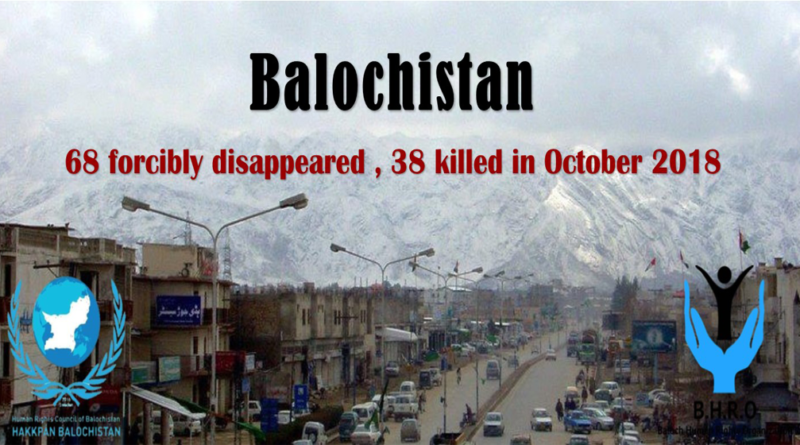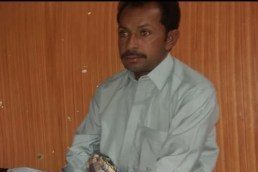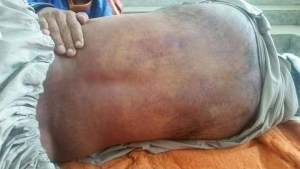Balochistan: 68 forcibly disappeared, 38 killed in October 2018
Baloch Human Rights Organization (BHRO) and Human Rights Council of Balochistan (HRCB) have received partial details of 114 cases of enforced disappearance and 38 extrajudicial killings in Balochistan during the month of October 2018.
According to the details, security forces carried out 12 military operations during the month of October in which the forces abducted and disappeared 114 people. Forty-six persons were later released while whereabouts of the remaining sixty-eight persons remain unknown. Moreover, thirty-eight people were killed in different areas of Balochistan.

The victims of enforced disappearances include Yasib Hasil. He was whisked away by the security forces from his home in Machi, a village in Dasht, district Kech. Early morning on October 2, forces carried out multiple raids in different areas of Dasht and forcibly disappeared several people including Yasib Hasil. The rest were later released while the whereabouts of Yasib Hasil remain unknown to date.
On October 08, forces forcibly disappeared 6 people from Shahrag Bolan, district Kachhi. The abductees were identified as Mohammad Ayaz Lagadi, Abdul Razzaq Lagadi, Jank Lagadi, Rahmo Lagadi, Hanif Lagadi, and Ismail Lagadi.
On October 12, security forces abducted Khalil Hamza, Musa Hamza, Sher Jan, and Faisal Ghafoor from Machat Dasht. Khalil Hamza and Sher Jan were later released whereas whereabouts of Musa Hamza and Faisal Ghafoor remains undisclosed.
Ali Akbar was whisked away from Gwadar on October 16. He is a resident of Jath, Dasht and was in Gwadar to earn his living as a labourer. On the same day, in a separate incident in Kahnak Mand, forces raided the house of Khuda Bakhsh. The women and children were tortured and Khuda Bakhsh’s 2 sons Sameer and Fahad were taken away.
Likewise, 2 brothers Musa Iqbal and Mujeeb Iqbal were abducted from their house in New Town Gwadar on October 20. In another raid in Gwadar on the same day, forces forcibly disappeared Qadir Bakhsh Mohammad Hasil from TTC Colony Gwadar.
On October 29, security forces carried out a massive military operation in Jhao and surrounding areas and forcibly disappeared several people including a woman Gul Nisa and her infant child Atta Dilshad. Some of the abductees from Sorger Jhao were identified as Nazar Mohammad Hussain, Sheikh Gamani, Din Mohammad Sulaiman, Umar Jan, Shahdad, Shahid Dost, Lal Bakhsh, Khan Mohammad, and 70 years old Hakeem.
Thirty-eight persons were killed in separate incidents during the month of October. Eighteen of them died in target killings, 4 mutilated bodies were recovered, 10 people were extra-judicially killed in the custody of forces, 3 people were killed in an encounter with forces while another 3 beyond recognizable decomposed bodies were also recovered from Balochistan in October.
Wahid Umer, a resident of Bal Nigwar, district Kech was abducted by forces on September 21, 2018, during a military operation. He was subjected to inhuman torture during his detention. Afterward, on October 13, 2018, forces shifted him to the hospital in Turbat where he died. His body bears signs of severe torture.
On October 14, mutilated body of Ali Dost Jan Mohammad was recovered from Sordo Panjgur. He was identified through his National Identity Card (NIC) placed near his body. Ali Dost was from Salari Gichk and was abducted by state-sponsored death squads on June 6, 2017. He remained disappeared until his body was recovered from Panjgur.
Separately, on October 14, the forces carried out a massive military operation in Bolan where 10 people were forcibly disappeared. On the next day, 8 of the abductees were shot and their bullet-riddled bodies were dumped in Zarghoon Ghar. All of the killed people belonged to Nasir and Domard tribes.
The Military is engaged in a counterinsurgency campaign in the region where the conflict between Pakistan’s central government and indigenous people of the region took a violent shape in the early 2000’s. Thousands of political activists, poets, reporters, students and lawyers were abducted and forcibly disappeared by Pakistan military in Balochistan.
The security forces maintained parallel government and control over provincial affairs of Balochistan despite the presence of a provincial government.
Lack of accountability and a culture of impunity are contributing to the ever increasing serious human rights violations in the region.



